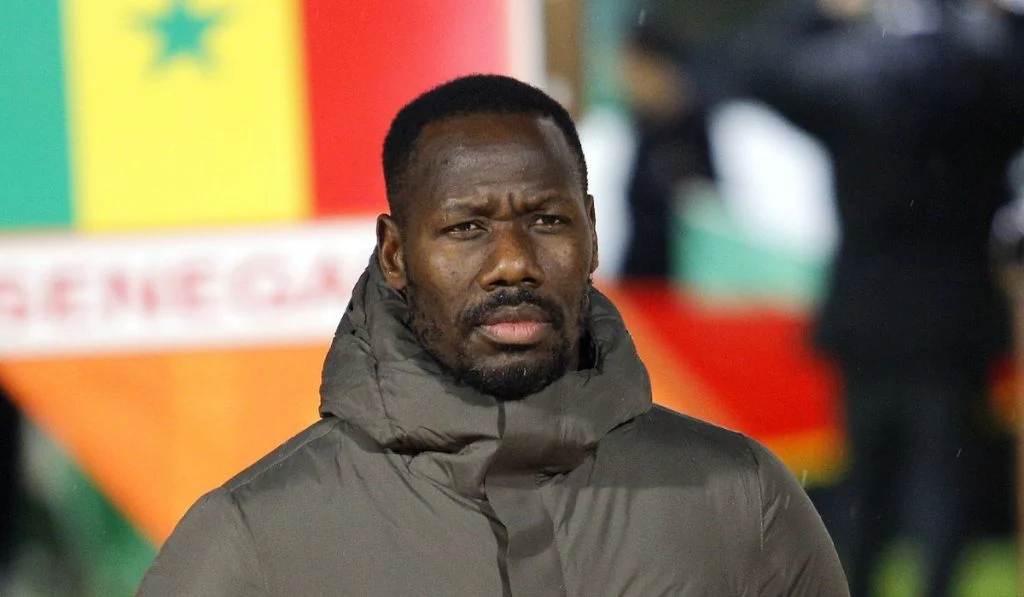Senegalese football faces crisis as state withdraws funding for African club competitions

Senegalese football is on the brink of a major crisis following the government’s decision to cut state funding for clubs participating in African continental competitions.
The Senegalese Football Federation (FSF) was left reeling after receiving an official letter from the Minister of Sports, Khady Diène Gaye, on February 19, announcing the end of financial support for clubs representing the nation in the CAF Champions League and Confederation Cup.
The government’s withdrawal of funding, which primarily covered travel expenses for international fixtures, casts immediate doubt over the participation of Senegalese clubs in upcoming African competitions.
The move has sparked widespread concern among football officials, club executives, and supporters, with fears growing that leading clubs could opt out of the continental tournaments altogether.
Financial Strain Threatens Club Participation
Traditionally, the Senegalese government has reimbursed travel costs for clubs competing on the continental stage, recognizing the significant financial burden such campaigns impose.
However, with this support now withdrawn, many clubs face a stark reality—participating in the CAF competitions could become financially unfeasible.
“Without state-backed funding for flights and logistics, it’s simply not viable for us,” admitted a Ligue 1 club president, who expressed frustration at the sudden nature of the announcement.
“We already lose money participating in these tournaments. Without travel support, I would refuse a spot in the African Cup without hesitation.”
The concern isn’t unfounded. Just three years ago, Teungueth FC withdrew from CAF interclub competitions, citing financial constraints. Now, with the current funding crisis, the threat of more clubs following suit looms large.
Coaching Crisis Adds to Football Turmoil
The funding controversy comes amid broader instability within Senegalese football, particularly regarding the national team’s coaching situation.
Since Aliou Cissé’s departure at the end of his contract on August 31, 2024, Senegal has been without a permanent head coach. Cissé, who previously earned a salary of 30 million FCFA per month (approximately €40,000), was succeeded by interim coach Pape Thiaw, who remains without a formal contract despite leading the team to qualification for the next AFCON.
Thiaw currently earns just 3 million FCFA per month (around €4,500)—a tenth of his predecessor’s salary.
Despite initial rumors linking high-profile names such as Hervé Renard, Habib Beye, Omar Daf, and Patrick Vieira to the role, the state’s push for cost-cutting measures resulted in Thiaw’s interim status being prolonged without official confirmation as head coach.
“The situation is untenable,” said a source close to the FSF. “You can’t expect top-level performance when the system is this unstable.”
FSF Under Pressure to Reverse Decision
FSF President Augustin Senghor now faces the monumental task of persuading the government to reconsider its stance.
The timing of the funding cut has added an awkward twist—Senghor’s own club, US Gorée, currently leads the Senegalese Ligue 1 and could be among the teams affected by the funding freeze.
Upon his return from Cape Verde, where he attended a UFOA A meeting, Senghor is expected to spearhead negotiations with the government in a bid to salvage Senegalese participation in CAF competitions.
The issue also highlights the disparity between the success of Senegal’s national team—ranked second in Africa by FIFA—and the relatively modest performance of its club sides on the continental stage.
Despite Jaraaf’s recent near-qualification for the Confederation Cup quarter-finals, Senegalese clubs remain 17th in CAF’s club rankings, a stark contrast to the national team’s standing.
A Call for Reform in African Football
If the state maintains its stance, Senegal risks seeing its clubs forfeit future editions of the Champions League and Confederation Cup.
While technically possible for the FSF to nominate lower-ranked clubs willing to participate without financial backing, such a solution would only mask the deeper structural issues facing Senegalese football.
The crisis has reignited calls for a broader reform of African club competitions, with critics arguing that current structures place undue financial strain on clubs from nations where domestic revenues cannot offset the costs of continental campaigns.
For Senegalese football, the coming weeks will be pivotal. Unless a compromise is found, the nation’s clubs could soon be absent from Africa’s most prestigious tournaments—a move that would tarnish Senegal’s reputation as one of the continent’s footballing powerhouses.
Résultats et classement de la 14e journée de la Ligue 1
Où se trouve votre club dans le classement ???? ?#LSFP #Ligue1SN pic.twitter.com/OhwVbwlBRZ— Ligue Sénégalaise de Football Professionnel (@LSFP_sn) February 9, 2025
Related To This Article
-
Africans Abroad
Senegal defender Bouna Sarr returns after two-year absence
February 22, 2026
-
Africans Abroad
Mohamed Amoura assist not enough as Wolfsburg fall late to Augsburg
February 22, 2026
-
Africans Abroad
Ademola Lookman rediscovers his love for football with flying start at Atletico Madrid
February 22, 2026
-
Africans Abroad
Peter Crouch questions criticism of Mohamed Salah
February 21, 2026
-
Africans Born Abroad
Joshua Zirkzee set for possible Serie A return this summer
February 21, 2026
-
Latest News
Houssem Aouar shines as 10-man Al-Ittihad fight back
February 21, 2026
Popular News
-

Senegal defender Bouna Sarr returns after two-year absence
Feb 22, 2026 -

Mohamed Amoura assist not enough as Wolfsburg fall late to Augsburg
Feb 22, 2026 -

Ademola Lookman rediscovers his love for football with flying start at Atletico Madrid
Feb 22, 2026 -

Peter Crouch questions criticism of Mohamed Salah
Feb 21, 2026
-

Senegal defender Bouna Sarr returns after two-year absence
Feb 22, 2026 -

Mohamed Amoura assist not enough as Wolfsburg fall late to Augsburg
Feb 22, 2026 -

Ademola Lookman rediscovers his love for football with flying start at Atletico Madrid
Feb 22, 2026 -

Peter Crouch questions criticism of Mohamed Salah
Feb 21, 2026
